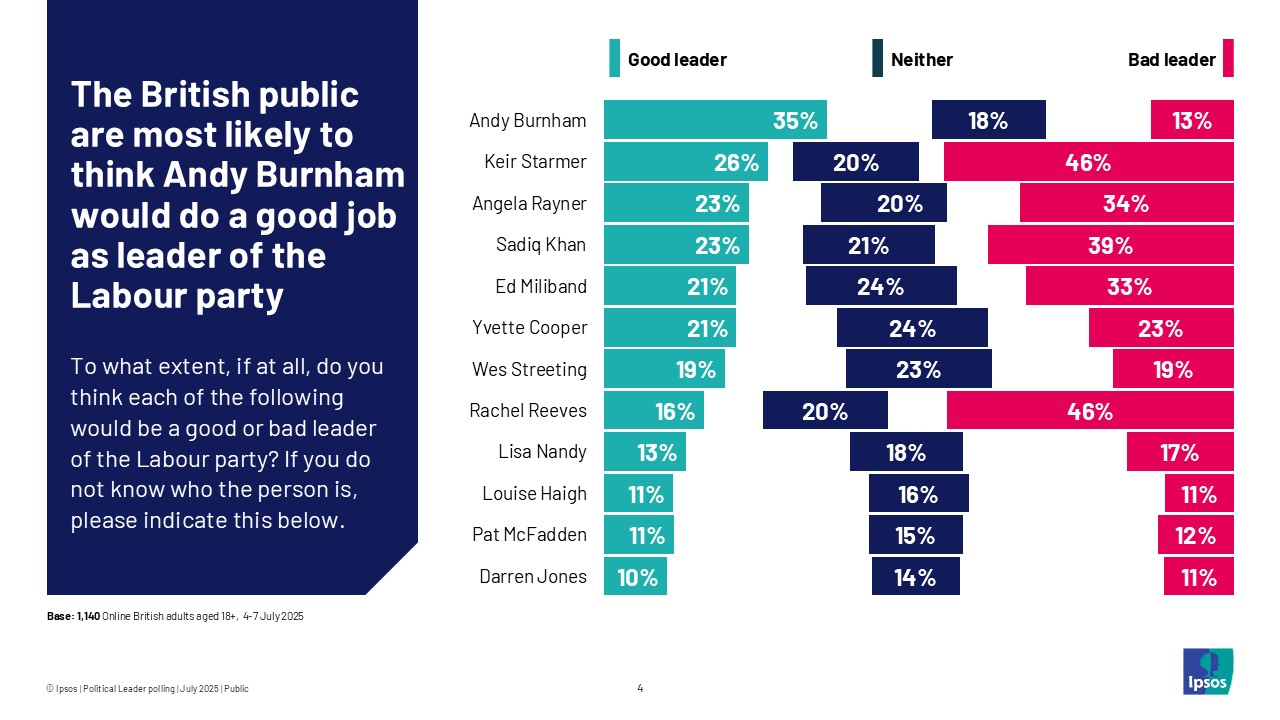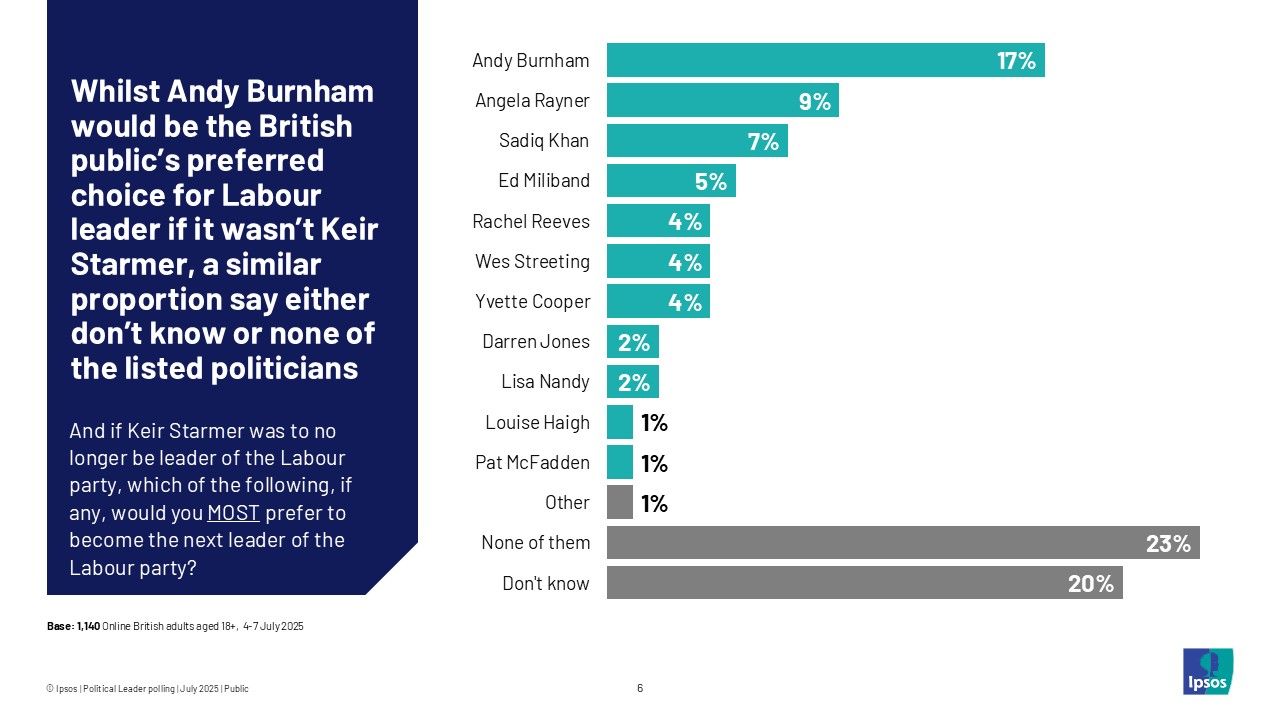Public most likely to think Andy Burnham would do good job as Labour leader, more than Starmer, Rayner and Streeting
New research from Ipsos in the UK suggests that Manchester Mayor Andy Burnham (35%) beats current Prime Minister Keir Starmer (26%), Deputy Prime Minister Angela Rayner (23%) and Health Secretary Wes Streeting (19%) among the public for who they think would be a good leader of the Labour Party.

Ipsos’ findings come amid a backdrop of public dissatisfaction with Keir Starmer, as 54% believe he is doing a bad job as PM, up 4 points since May and his worst rating in office. This is reflected in the 46% who think he would do a bad job as leader of the Labour party, with only Rachel Reeves receiving similar levels of negativity. In contrast, only 13% say Burnham would do a bad job, though 33% don’t know enough about him, compared with only 8% for Keir Starmer.
When asked who would do the best job as Labour leader, Andy Burnham (16%) and Keir Starmer (15%) are tied among British adults, though 26% choose none of the potential candidates. Starmer leads among 2024 Labour voters (by 33% to 19% for Burnham), while Burnham is most popular potential candidate among 2024 Reform UK (28%) voters – though this group is much more likely to say none of the above appeals (43%).
If Keir Starmer was no longer the leader of the Labour Party, Andy Burnham (17%) is the most popular public choice, ahead of Angela Rayner (9%) and London Mayor Sadiq Khan (7%). However again just as many if not more say “none of the above” (23%) or don’t know (20%. Burnham (24%) also receives most support among 2024 Labour voters, ahead of Rayner on 15%, though again as many say either none of the above or don’t know.

Ipsos also asked the public’s familiarity with 15 national politicians. Keir Starmer (66%) and Nigel Farage (65%) are the two most well-known politicians, with two thirds of the public saying they know at least a fair amount about them. Other politicians are less well-known, including:
- Sadiq Khan (51% know a great deal / fair amount)
- Rachel Reeves (49%)
- Ed Miliband (46%)
- Angela Rayner (45%)
- Kemi Badenoch (39%)
- Ed Davey (39%)
- Andy Burnham (37%)
- Yvette Cooper (36%)
- Wes Streeting (31%)
- Lisa Nandy (22%)
- Pat McFadden (15%)
- Darren Jones (15%)
- Louise Haigh (14%)
- Stewart Lewis* (11%), a fake politician’s name
Commenting on the findings, Gideon Skinner, Senior Director of UK Politics at Ipsos said:
Our research suggests that the Labour figure the public feel most positively about currently is Manchester Mayor Andy Burnham, more than any cabinet members and the Prime Minister himself. One in three think Burnham would do a good job if he were to become Labour leader, and he would be the public’s most popular choice if Keir Starmer was no longer in role – although still not picked by very many, with even more ticking ‘none of the above’. This reflects just as much the high level of unpopularity of Keir Starmer, and some other cabinet members such as Rachel Reeves. Labour 2024 voters themselves still prefer Starmer as their party leader, and Andy Burnham – as well as several other Labour cabinet members – still have work to do to cut through to the public at large. Something that could also be said about Conservative leader Kemi Badenoch, who has her own challenge raising public awareness to the levels of Keir Starmer or Nigel Farage.
Technical note:
- Ipsos interviewed a representative sample of 1,140 adults aged 18-75 across Great Britain. Polling was conducted online between the 4-7 July 2025.
- Data are weighted to match the profile of the population. All polls are subject to a wide range of potential sources of error.



